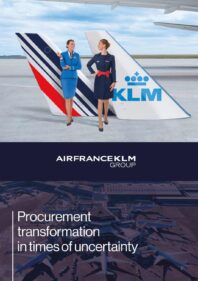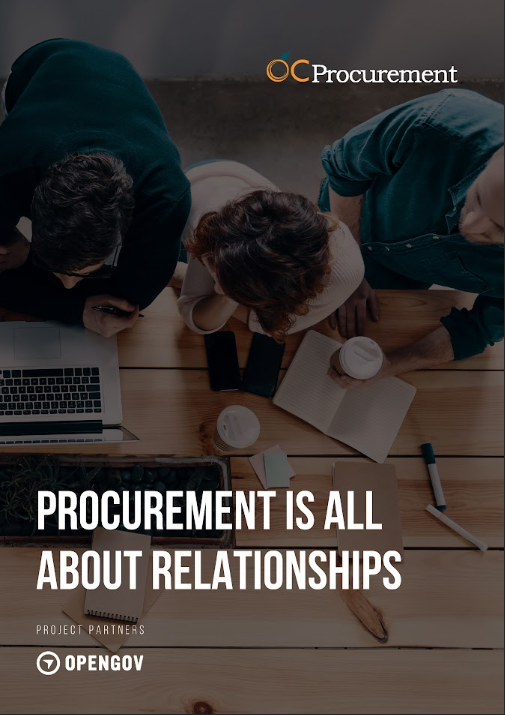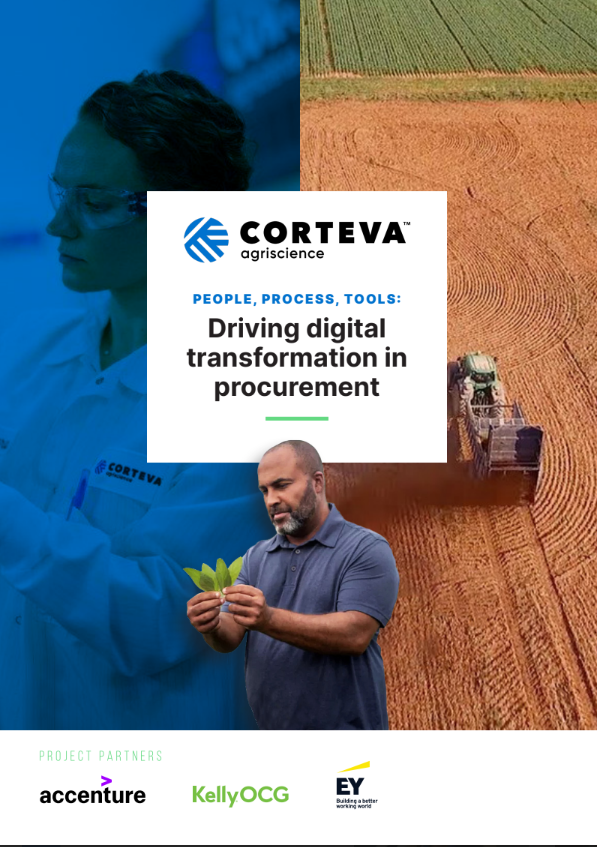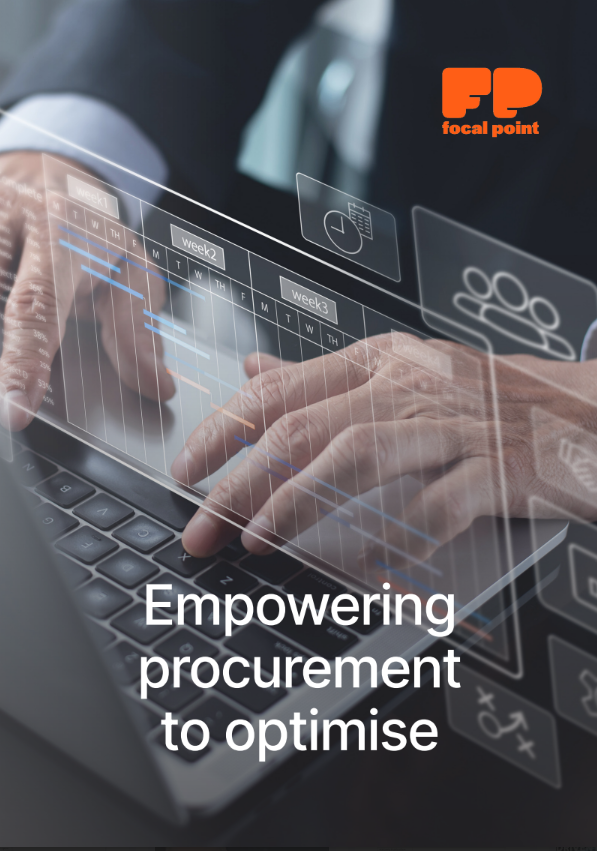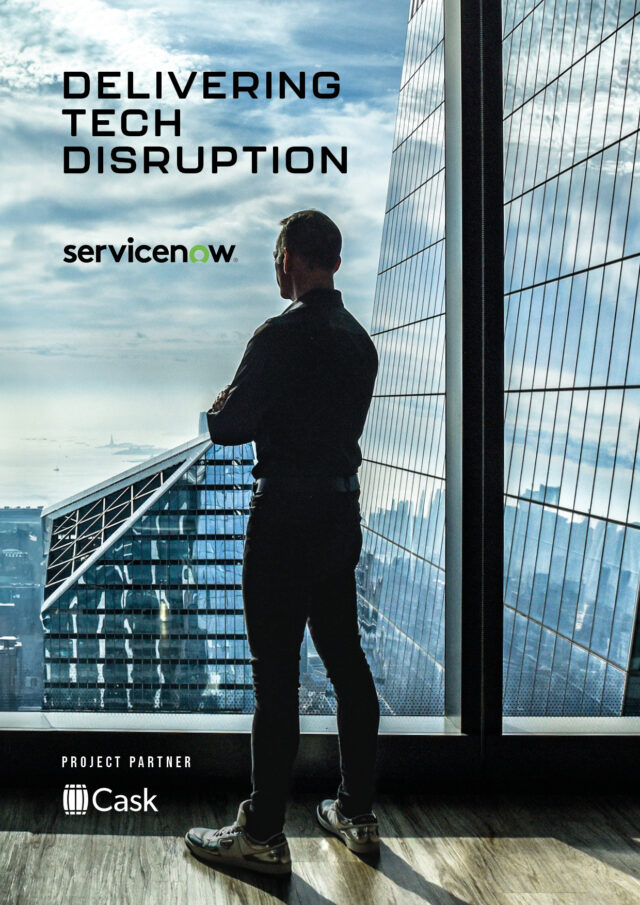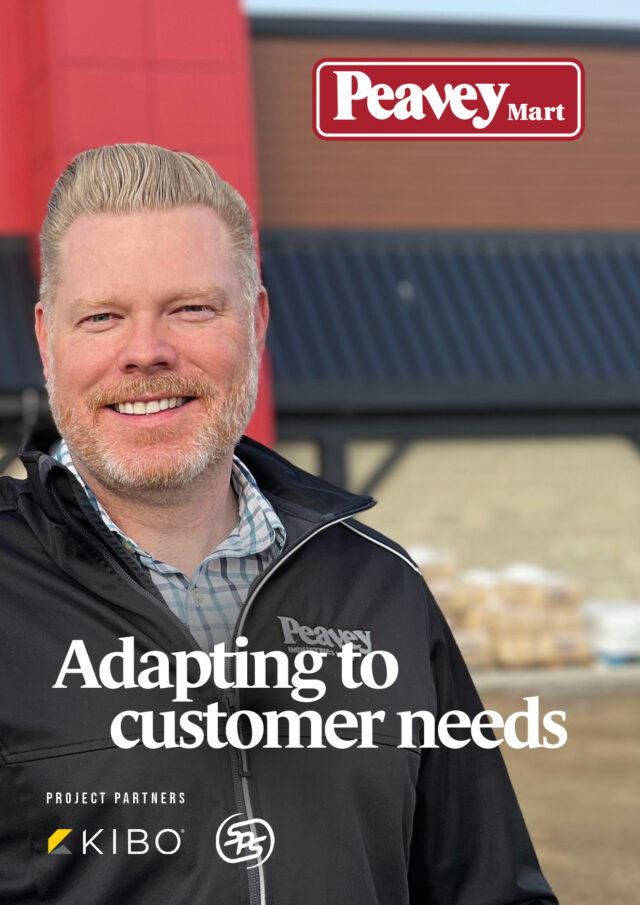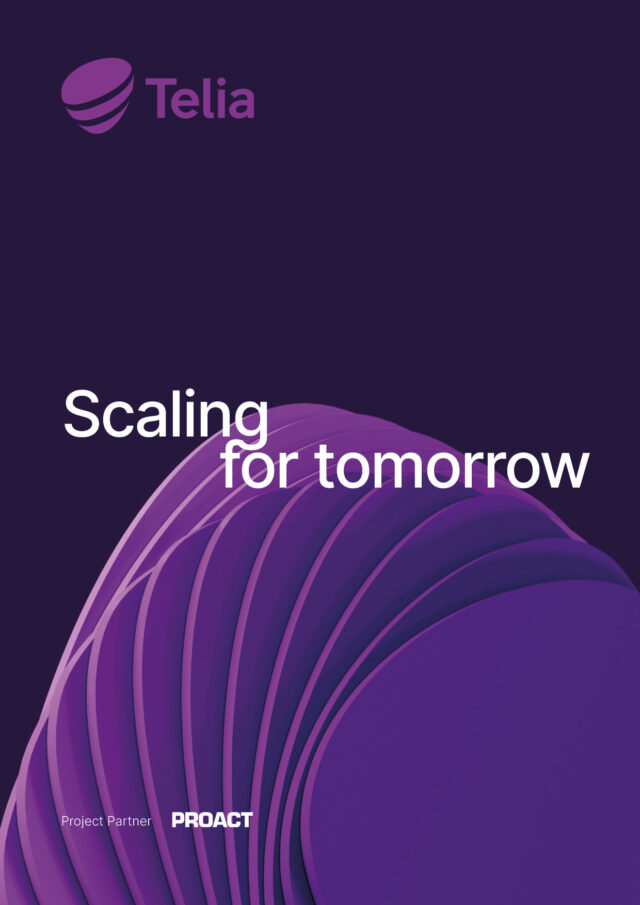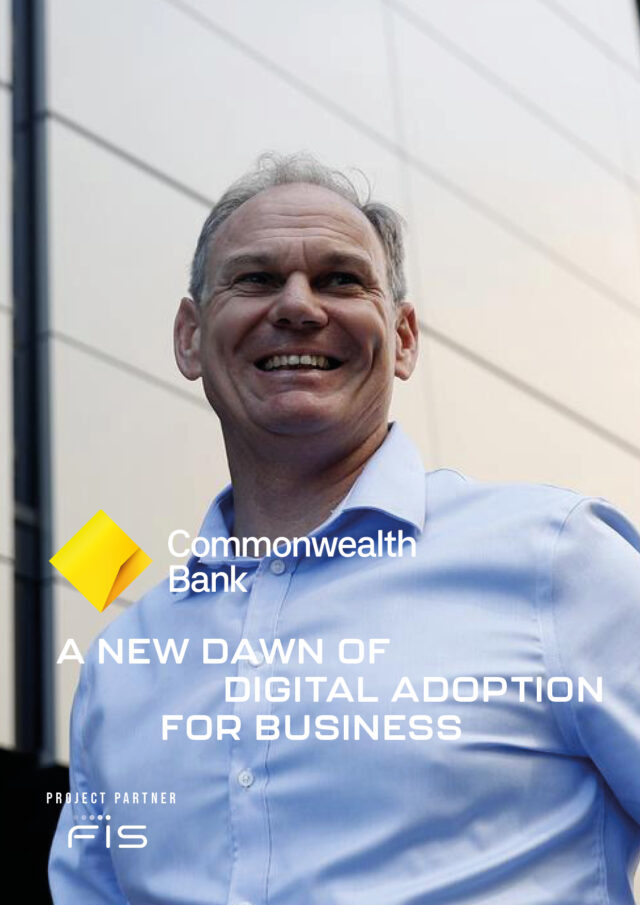The continued evolution of procurement has seen ‘acceleration’ fast becoming the key goal. 2020, and the COVID19 pandemic have applied copious amounts of pressure on an organisation’s ability to not only manage cash flow, but to secure a sense of stability in a future of uncertainty. Over the past ten years, procurement has been slowly stepping out of the shadows and moving into the centre of business and now it finds itself truly in the spotlight.
For Air France-KLM, operating within an incredibly volatile industry, procurement has perhaps always been recognised as a vital cog in business continuity. The evolution of procurement within Air France-KLM comes in the form of seeking out and enabling innovation and unlocking new opportunities and value for the business. As part of a major procurement journey, the call-out to the business now is: How do we optimise and accelerate procurement further?
“The core of what procurement does is build solid strategies and run sourcing projects to maximize value for our business stakeholders,” explains Jurriaan Lombaers, SVP & CPO, Air France- KLM. “It’s not only about doing it, but doing it together with the business and in doing so you need to consider procurement excellence. Doing it in an ‘excellent’ way and raising the maturity of both procurement and the wider business operations as a result.
None of this is possible of course, without investing in our people. An airline has many assets of course, but in procurement our assets are the people.”
Ultimately, for Air France-KLM and its procurement journey, the goal is to drive greater consistency across the business. But a key challenge, and a challenge faced by many if not all CPOs, is defining the journey and what procurement excellence and consistency means for them. In order to embark on the journey and make progress, the why, how and what, must be answered and clearly identified. This is easier said than done. In an industry discipline whose dialogue is completely dominated by notions of transformation, and all the trends and buzzwords that come with it, this is incredibly important and something that needs to be done right.
“We need to ensure that between the two entities, Air France and KLM, that we continue to have a very open dialogue,” says Lombaers. “It’s also about looking collaboratively at how we do things, what can we learn from each other and what can we glean from looking at different industries or by many different ways to try
to benchmark ourselves. Whether that’s in how well we rate our sourcing plans and execution or how well we’ve digitized. How data driven we are? How efficient are we in our operations and the way we organise ourselves? Look at this first and foremost and the road ahead becomes clearer.”
Lombaers was brought into Air France-KLM to lead this procurement transformation journey, and right from the word go he set about understanding the business, the culture and ultimately what procurement meant for Air France-KLM. During this time, he decided to focus on one core element of procurement that perhaps gets lost in the conversation: storytelling. Procurement professionals know procurement, the challenge comes when you step outside of the procurement realm; does the business know procurement? Lombaers is a long-time subscriber to the notion that the procurement function needs different ideas, different mindsets and different approaches to enable true innovation. Ironically, it’s these different experiences that lead to greater consistency.
“Very often in procurement organisations we’re so very busy with the execution, with the focus that we assume all stakeholders are aware and can see it. The reality is, very often they don’t and so it’s important that we bring our story forward, particularly when it comes to the buy-in as it whets the appetite to do more,” he says.
“But it also means that we need to start spending time on building that story and have the data available. It starts with getting the procurement function organized for that and valuing the effort that you need to do that.”
Lombaers brought in Laurens Vonkeman, Controller, Procurement, Air France-KLM, to help enable and aid in that storytelling approach. Vonkeman understands exactly just how important that narrative is in getting your voice heard in an organization. “Storytelling is very often accompanied by reporting to the different stakeholders. Right now we are in the process of utilizing new data systems in order to create that story within the procurement community,” he adds. “We need to all be on the same page as a business so that we understand together how procurement operates. We’re reasoning about financial awareness, ensuring that we are better connected and truly understand each other through reporting to tell the story.”
Lombaers speaks more of the specific nature of Vonkeman’s role and what it means for the broader storytelling angle. Vonkeman will operate, to a certain extent, as an independent person. He is neither 100% a representative for procurement nor 100% a representative for the wider business, he sits right in the middle and listens and reports from both sides. What this does, Lombaers believes, is help establish and solidify the credibility of the transformation and allows procurement to really earn its seat at the table.
While a procurement transformation does involve technology and indeed a new system, be it a P2P suite or a reporting/data capture solution, to focus entirely on this is to ignore the key element in which Lombaers has already highlighted: the people. After all, the best systems and software mean nothing if the people within the function are not equipped with the best skills and enabled by the right culture to grow and develop alongside the journey.
At this point strategic sourcing comes into play. “You look at focusing the roles in procurement a little more and where you have people working in categories or domains, you want them to be able to focus on strategic sourcing, on collaborating with the business but also challenging the business and bringing new ideas in,” says Lombaers. “Ideally you want them to have data at their fingertips so that they can focus 80% of the time on creating value with and for the business, and 20% on getting the data. Versus the other way round. The more we can facilitate that, the better.”
This is where you often see across the procurement space a move to extract the so-called “transactional work” from those categories and domains into more dedicated teams, to digitize those processes and make them more efficient and consistent. Lombaers speaks to the idea of investing not only in a controller, but business analysts
too. “We can then start a journey of creating actionable insights and making data easier, and more available,” he says. “This is where you get that Centre of Excellence model and this allows us to drive our procurement excellence journey forward where we’ve further
invested in expert and transformation roles; people that really focus on how we get to the next maturity level.”
“On one hand, they work on setting the strategy but also work side by side with our procurement directors, to implement those strategies and provide a service and look at how we digitise the source to contract process or do risk management for example.”
The people, Lombaers continues, are the real key enablers for the overall transformation and in order to bring those people along (aside from the CoE model approach) newfound impetus is given to the notion of change management.
Change management can be two words that unlock a procurement transformation, or indeed block it – so getting it right is key. Lombaers highlights once again the significance of obtaining that deep level understanding of the business and its culture, reflecting on what has come before, what’s worked (and proven unsuccessful) and then building on those foundations.
“It’s important that you recognise everything that’s already in place and then recognise that your desire is to make it better, or even better than it already is,” he says. “You need a balance between speed and alignment. If we need to align with everybody, the process becomes slow because that alignment will take time. You’ve got to find the balance.”
Lombaers speaks of sometimes having to push your team a little harder in places and easing off a little in others, recognising that there is no secret to success in change management and transformation. Once again, Vonkeman’s role as a Controller proves key as he (along with business analysts and experts) are able to connect with the procurement domains, hear about their pain points and then both explain and adapt the strategy. “What it boils down to,” Lombaers adds, “is communication, communication, communication.”
Data, as we know, is the key to storytelling for procurement. Data, perhaps more than anything else, speaks the loudest and a reporting system is required to truly enable this conversation. Air France-KLM, being an airline group, is not by definition a technology developer and therefore it needed to look to the market to find a solution and in turn a partner to enable the data-driven transformation. Lombaers acknowledges that there was a need for the business to “step up” it’s spend analytics reporting capabilities and to classify its spend properly from both a procurement and financial perspective.
Air France-KLM partnered with Rosslyn Data Technologies, a software company providing procurement and master data management solutions in the Spend Analytics, Supplier Information Management, Supplier Performance Management and Supplier Contract Management arena. Here, the company implemented its RAPid Spend (known as MySpend within Air France-KLM) solution.
“Businesses are tasked with making critical decisions based on their data and it is essential that this data is as robust and as accurate as it can be to make those decisions,” says Nadia Law, Rosslyn Data Technologies. “If you have inaccurate or badly
categorised data, the output of your procurement initiatives won’t lead you to make the right choices. Having a really clean, enriched data set enables a business to categorise their data in a way that is meaningful for them, supporting the identification of procurement initiatives that can improve cost savings, business processes and cost management.”
With transformation, no matter the size of the company or the scope of the journey, change cannot occur overnight. The journey from where a company is to where it wants to be is not as simple as moving from A to B and both Lombaers and Vonkeman understand this. For them, navigating this journey is as much about recognising and accepting the time it takes to achieve the key goals as it is about the goals themselves.
Much like establishing a balance between speed and alignment in change management, it’s about establishing a balance between quick wins and successes and the realities of operating in a volatile industry space.
“Gaining adoption is a step by step process ultimately,” says Lombaers. “But it’s also important to think about quick wins and creating success stories. You see in procurement organisations either the early adopters or you see people that are finding it a bit more difficult to embrace the change and so the approach is different for everyone.”
Vonkeman adds: “You also want to recognise the figures that should be recognised. As the data quality improves and becomes even more enriched and takes procurement to the next level, that helps acceptance. But that’s only part of the story. Those early adopters in the business can really help the other people who are in the second or third wave of adopting because the truth is: these journeys are hard work.”
Despite transformation being such a broadly recognized conversation happening all over the world right now, with success stories easy to find, there is and perhaps never will be any guarantee of success. There is no one single way to navigate the complexity of transformation, but are we guilty of focusing solely on the successes and ignoring the
failures? Lombaers, like many, is an avid subscriber to the thought process of learning more from the things that don’t happen compared to the lessons learned from the things that do.
“It’s hugely important to talk about mistakes because if you don’t make any mistakes you’re probably not taking enough risks,” he says. “I think one of the big ones is that we’re probably not, at the beginning, talking enough about the why. Why do we change? We identify the why, but do we talk about it enough? Then of course there’s biting off more than you can chew and trying too much too fast. Ultimately we have to be open enough to pick up the concerns and address them and that helps us to make the approach better in the next version.”
“Not doing so will still see us get there, but by really working together in this way we can travel a lot further. It generates sustainability within the journey of getting there.”
